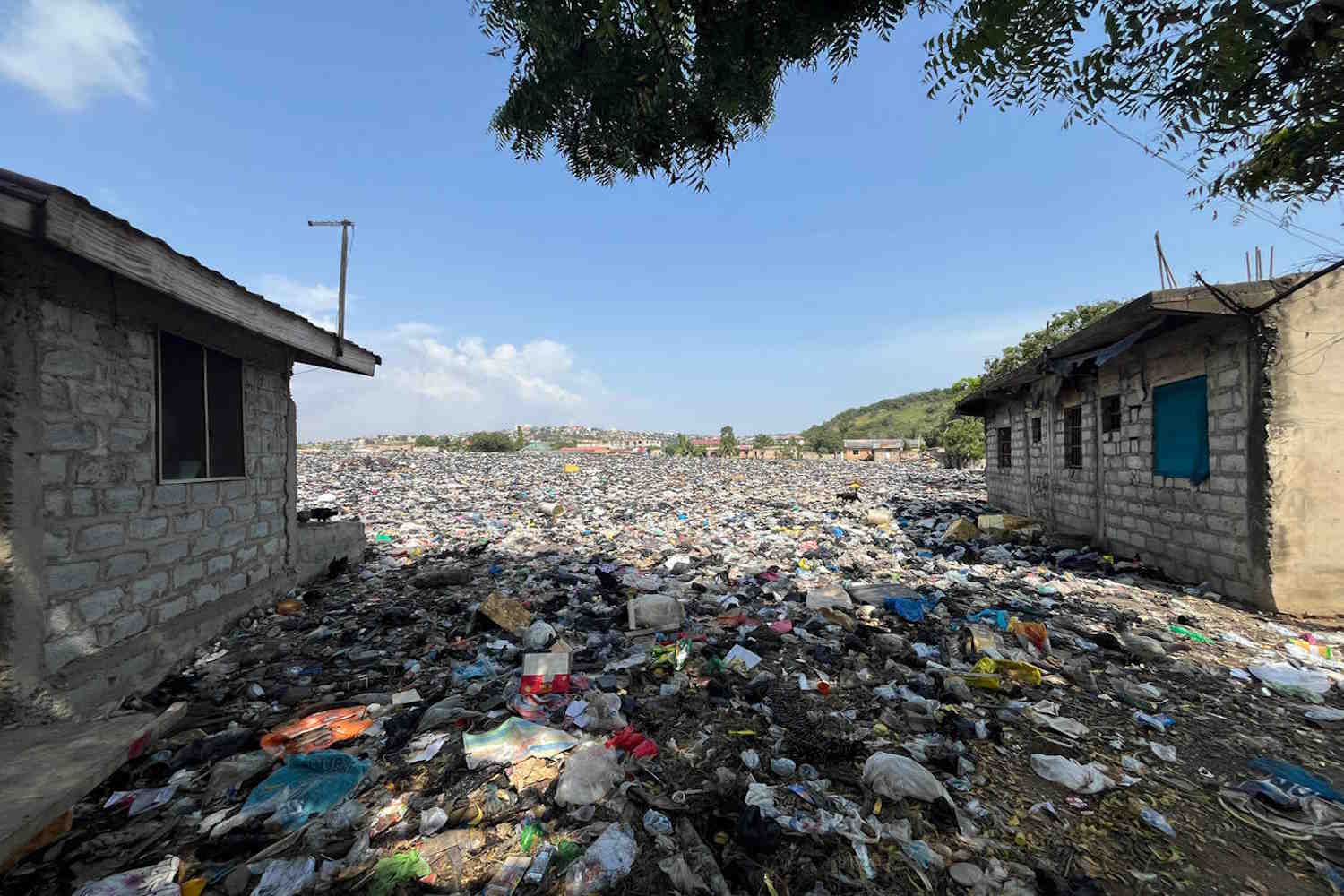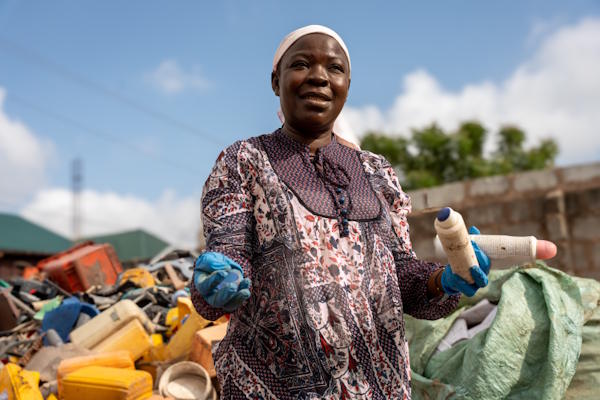Ghana’s waste pickers battle mountains of plastic daily, but global “solutions” often ignore them. Their work is vital — yet they remain underpaid, overlooked, and essential.

@Medium Res
Ghana is drowning in plastic. According to the NGO Earth Care Ghana, more than 2.2 million U.S. tons (2 million metric tons) of plastic products pour into the West African nation every year. Ghanaians, like their neighbors in Nigeria, throw away over 1.1 million U.S. tons (1 million metric tons) annually — the weight of more than half a million cars. That works out to about 68 pounds (31 kg) of plastic waste per person.
That’s far below the staggering levels in the United States and the United Kingdom, who lead the world in plastic waste generation. But richer nations have ways to “deal” with it — often by quietly offloading the problem elsewhere. Last year alone, the U.S. shipped nearly 550,000 U.S. tons (500,000 metric tons) of its old plastic overseas.
In Accra, the capital, you don’t need statistics to understand the scale. A walk along its coastline says enough: waves crash into walls of garbage, and the sand is laced with colorful fragments that once had a purpose. The reporting by Jess Staufenberg, with photographs by Costanza Gambarini, tells these stories up close — including that of waste picker Lydia Bamfo, whose quiet persistence has kept whole neighborhoods from suffocating in trash.
We clean the city
In Jamestown, Accra’s oldest district, wooden shacks turn their backs on the Atlantic, hiding the water behind a maze of narrow lanes. At the end of each, there’s a beach — if you can still call it that — almost invisible beneath layers of litter.
Here, waste pickers like Lydia Bamfo work every single day to shrink the “mountains” of plastic that choke the city and its shores. And yet, even after the daily sweeps, the sand remains streaked with billions of microplastics too small to collect.
Lydia and Johnson: faces of daily resistance
Lydia, 51 years old and mother to seven, has been starting her days before dawn for a quarter of a century. She pedals a tricycle through Accra’s streets, collecting plastic, weighing it, and recording the loads brought in by younger pickers who depend on her. Today she leads the Accra Borla Tricycle Association, representing more than 8,000 workers. Her life has been marked by poverty and abuse, but she calls her work “important,” adding, “Without us, the city would be buried.”

@Costanza Gambarini/SourceMateria
Johnson Doe began at 16 among the dumps of Tema. Now he heads an association of 700 waste pickers and serves as Africa’s representative for the International Alliance of Waste Pickers, a network of 40 million workers worldwide. His team rescues up to 40% of dump waste — materials that would otherwise sit there for decades.
Half a dollar a pound in inhuman conditions
The plastic they collect — especially valuable HDPE, used for jerrycans, bottles, and tanks — is sold to recyclers for about $0.23 per pound ($0.50 per kg / 5 cedis). That’s barely enough to survive in a city where the daily minimum wage hovers around $1.80.
Many pickers are orphans, cut off from internet access, legal protections, or any real voice. The dumps are thick with toxic materials, medical waste, and industrial scrap. Injuries are common. Illness from smoke and fumes is almost inevitable. Lydia’s daughter Keren, just 19, already suffers from chest pain and shortness of breath.
Then there’s the stigma. Lydia has been called “vulture” and “witch” — even disowned by her own family for the work she does. Yet without her, Accra would choke.
The “market solutions” that leave workers behind
While governments hesitate, glossy initiatives have emerged. The World Bank’s $100 million “plastic bonds” promise that each ton of collected plastic generates a credit companies can buy to call themselves “plastic neutral.” In Ghana, some of this money flows to organizations like the ASASE Foundation, which turns plastic into pellets or “lumber” for school desks.
It sounds promising. But on the ground, Lydia and Johnson tell a different story. Waste pickers say they receive nothing from these funds and are often underpaid or outright excluded from the new supply chains. Johnson accuses ASASE of bypassing his association entirely, sparking a long and costly legal fight.
Critics call such projects “false solutions” — they don’t cut plastic production, they don’t support the people doing the hardest work, but they do let corporations scrub their conscience. And all the while, the toughest plastics — multi-layer packaging, for example — stay scattered in the streets, untouched.
The real answers start at street level
Environmental experts and waste picker leaders agree: any real fix must start with those already on the ground. That means recognizing and directly funding their associations, enforcing producer responsibility laws so companies must deal with their products after sale, and holding polluters to account so the costs of plastic aren’t carried only by the poor.
Behind every bottle collected, there’s a face, a story, a sacrifice. Lydia, Johnson, and thousands like them are working in the shadows for a cleaner future. But we cannot expect them to solve a crisis created elsewhere. We need justice, not just technology. We need listening, not just finance.
A sustainable world is built together, from the bottom up, for everyone.
Abstract:
Meta description:
Sources: Earth Care Ghana / Al Jazeera
